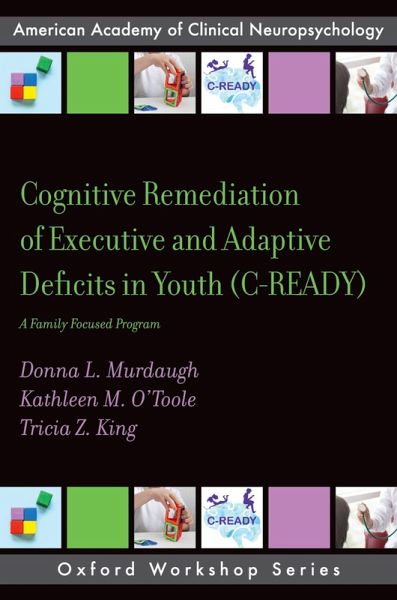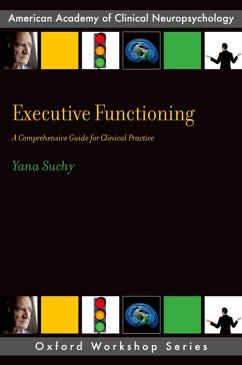
Cognitive Remediation of Executive and Adaptive Deficits in Youth (C-READY) (eBook, ePUB)
A Family Focused Program

PAYBACK Punkte
11 °P sammeln!
This book is a comprehensive and contextual guide to implementation of a family-systems focused, culturally competent cognitive remediation program for youth with neurological and medical disorders. The primary goal of the C-READY program is to guide successful transitioning to adult healthcare providers and medical management, and even more so, successful transition to adult independence. The book is divided into three main parts: Part 1 provides the empirical evidence and theoretical framework for the development of the C-READY program, outlining the brain injury and recovery model in which ...
This book is a comprehensive and contextual guide to implementation of a family-systems focused, culturally competent cognitive remediation program for youth with neurological and medical disorders. The primary goal of the C-READY program is to guide successful transitioning to adult healthcare providers and medical management, and even more so, successful transition to adult independence. The book is divided into three main parts: Part 1 provides the empirical evidence and theoretical framework for the development of the C-READY program, outlining the brain injury and recovery model in which the program is based, with specific attention to transition of care needs. Part 2 is the "nuts and bolts" of the program, providing the framework and content of the C-READY program so that it can be implemented in practice. Woven throughout the chapters are vignettes providing patient examples, reflecting the importance of considering diverse sociocultural contexts. Finally, Part 3 highlights additional considerations important to implementation of the C-READY program, including adaptations of special populations and decreasing barriers to care for health disparity populations. Overall, this book is a useful reference for neuropsychologists, psychologists, and other professionals interested in implementing the C-READY program within their professional setting.
Dieser Download kann aus rechtlichen Gründen nur mit Rechnungsadresse in A, B, BG, CY, CZ, D, DK, EW, E, FIN, F, GR, HR, H, IRL, I, LT, L, LR, M, NL, PL, P, R, S, SLO, SK ausgeliefert werden.













